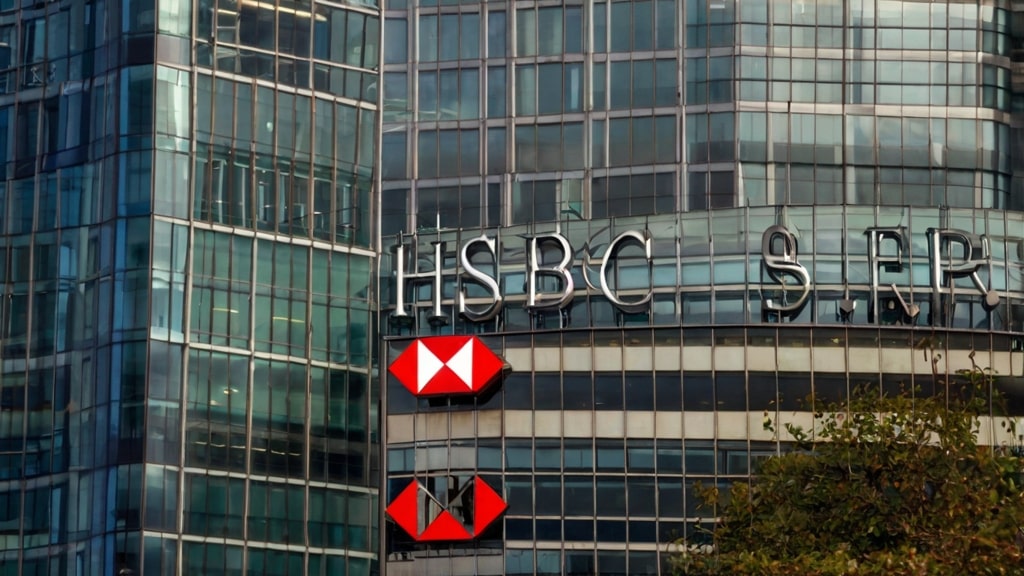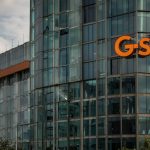
HSBC Stock Smashes 8-Year Peak at 912p After Asia Boom Fuels Record FTSE Close
LONDON, October 29, 2025 – HSBC Holdings plc, the crown jewel of the FTSE 100 in the global banking sector, fired off a market rampage yesterday, raising its full-year income expectations, rocketing shares to a maximum eight-year high and sending the benchmark index to new all-time highs. This giant revamp, in the face of rumours of trade tensions and central bank generosity, restates the position of HSBC as a pillar of the UK’s financial strength.
Income Outlook Positive Review Leads to 5% Share Jump
When HSBC unleashed a bombshell announcement of its projected net interest income 15 per cent rise to $42 billion in 2025, it upended the industry expectations of the bank and highlighted how it has managed to sail through the unstable interest rates and the increasing demand in Asia. The revenues of wealth management are now projected to grow 20% annually due to the inflow of affluent clients in Hong Kong and Singapore.
Designed to be announced just before this morning’s trading bell, the announcement sparked off a scalding 5.2% rise in the share of HSBC (LSE: HSBA), topping out at 912p – the highest level since 2017. Volume surged to 180 million units, more than the monthly average, as BlackRock money flowed to Vanguard, accumulated, and in search of low-rate hangover yields.
This is not a blip; this is vindication. HSBC has made the shift to high-margin operations in Asia, and the dividends are already showing as the company recorded profits of 18.5 billion in the third quarter, an 8% increase over the previous year. Traders are talking with confidence: HSBC is in the ear of the Fed, London said, as the global yield sways.
FTSE 100 Peaks at 9704 During Banking Boom
On October 28, the FTSE 100 peaked at 9,704 points, 0.52% up, and 18% up yearly, and the HSBC halo effect shook the markets with its exterior effect. The Standard Chartered and the Lloyds followed suit, rising 2.1 and 1.8% respectively, as the investor expectations of rate cuts by the Bank of England and the ECB built up.
Against this euphoria, we can compare the continental malaise: the DAX of Germany gained by 0.1% but was strangled by manufacturing blues, and the CAC 40 of Paris dropped by 0.3% on fiscal jeopardy. London’s alchemy? A combination of tough banks, deflation of the shop prices, and the US-China thaw means that commodity plays such as Glencore and BP will be buoyed.
Yet, caution lurks. According to CBI data, UK manufacturers were recording the steepest order contraction since 2020, which gave an indication of Brexit trauma and supply headaches. Nevertheless, the energy of HSBC that controls 7% of the FTSE weighting silences the clatter, carving a record nearer that welcomes more bulls.
Asia-Centric Strategy is Handsomely Paying
The transformation of HSBC under the CEO, Noel Quinn, glows. Asia has become the centre of 60 of revenues (as compared to 45 years ago) with digital banking apps onboarding 5 million users in a quarter. It is sweetened by the extension of buyback, which was announced together with the upgrade, which yields 6.2% and trades at an attractive 7x forward earnings.
It is strategic repositioning at its best, analysts are singing, as HSBC has an advantage in cross-border flows in the context of RMB internationalisation. Risks? Geopolitical outbursts in the South China Sea and US tariff sabres may dent it, but diversified buffers UK mortgages, Latin American corporates, etc, make the fortress stronger.
Market Tidal Waves: Wall Street to Threadneedle Street
The S&P 500 of Wall Street was reflecting the enthusiasm of the FTSE, as employment in the country started to recover, and trade optimism, with the sterling falling 0.4 per cent to $1.28, polishing exporters. The story in the City is enhanced by the retail clang of Next that came earlier in the week: UK plc is putting all cylinders into action.
To HSBC loyalists, the future looks bright. It is estimated to bring in a profit of $45 billion by 2026 with a return on the tangible equity of 12. It is the inflexion, proclaims one of the fund managers, since the index stock of the 25% YTD surges is outstripping the index of 18%.
Barclays Resounds the Charge in FTSE Frenzy
Barclays (LSE: BARC) was not left behind with the stealthy rise of 1.5%, boosted by a 30% increase in investment banking fees, which increased on M&A revival. Market value is pushing PS55bn, and the dividend yield of 2.1% attracts income investors. However, the shadow of HSBC is enormous as its international presence overshadows the national competitors.
Fed Budget Watch, Budget Vigilantes
With the day of October 29 dawning, the FTSE futures are steadily ticking, and the budget fronted by Rachel Reeves is looming like a thunderhead, with its tax tweaks, which can be used to shock lenders.
In the meantime, Fed rate speculations are the talk of the transatlantic. So far, the success of HSBC is the climax of the story: in the uncertain waves, such an enormous banking giant manoeuvres the right way.



 Bitcoin
Bitcoin  Ethereum
Ethereum  Tether
Tether  XRP
XRP  USDC
USDC  Solana
Solana  TRON
TRON  Lido Staked Ether
Lido Staked Ether  Cardano
Cardano  Avalanche
Avalanche  Toncoin
Toncoin